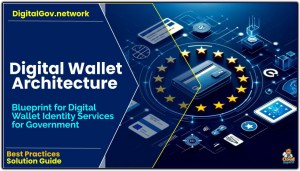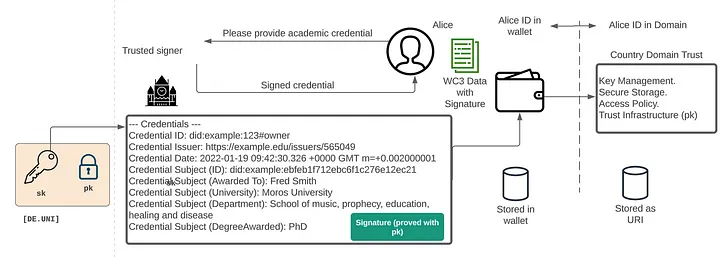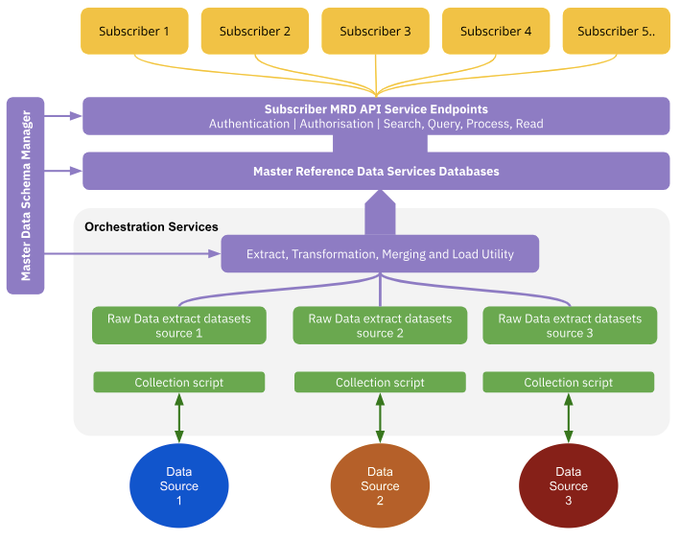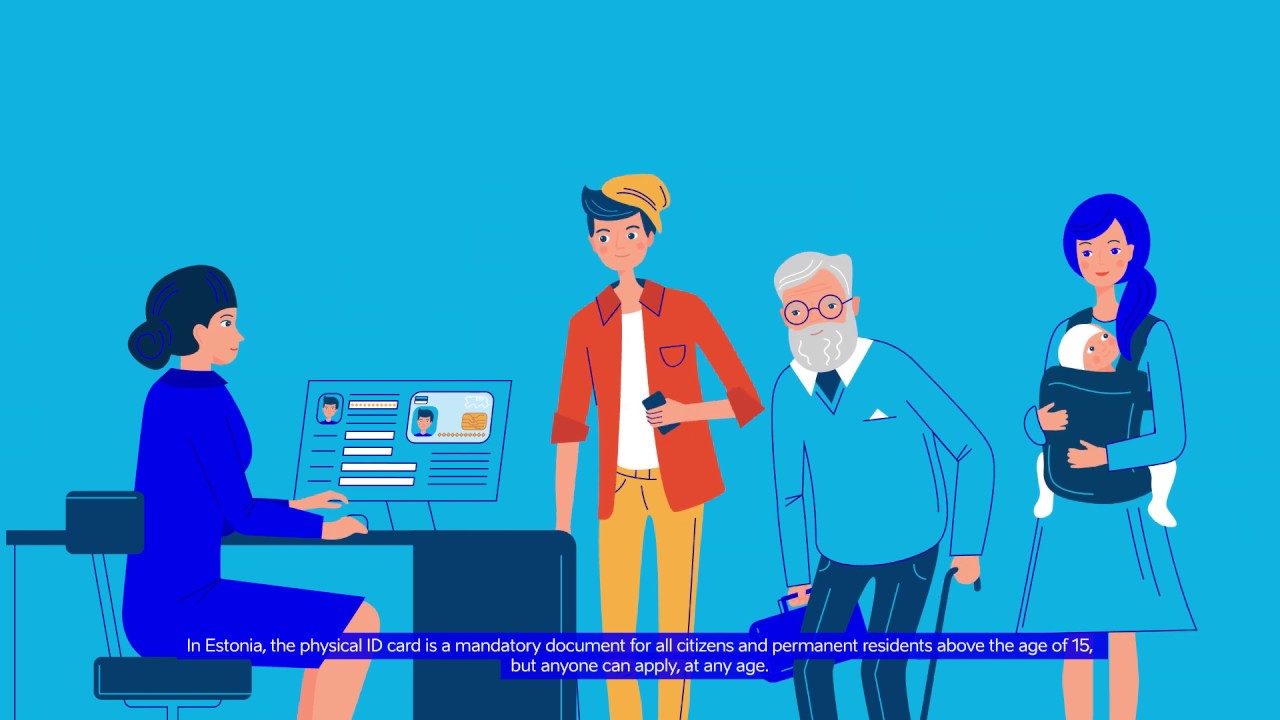Digital Wallets – Scotland’s Opportunity To Be At The Very Heart of the Global Digital Government Industry
A decentralized model of digital wallets and 'personal data stores' offers an entirely new architecture for identity services for Government.
 With the UK, Europe and the USA all pioneering the adoption of ‘Citizen Wallets’ as the centrepiece of their digital identity strategies, this trend will shape public sector technology more so than any other.
With the UK, Europe and the USA all pioneering the adoption of ‘Citizen Wallets’ as the centrepiece of their digital identity strategies, this trend will shape public sector technology more so than any other.
This is because it represents a shift from centralized data store design to a decentralized model, where individuals themselves hold and control their own personal information.
When you consider the vast estate of enterprise applications that governments operate, each one storing one particular view of citizen data, for example their Healthcare records, and how much duplication, error and cost is associated with this legacy debt, it’s clear just how profoundly transformation this shift could be.
Glass
The opportunity for Scotland to be at the heart of this trend is headlined by the work of Professor Bill Buchanan at Napier University. In this Medium blog he shares his compelling vision for fully digitized public services, with the Citizen Wallet being the central design feature.
The research that underpins this vision that could foster a portfolio of high value commercializations is ‘Glass’, which Bill explains in this Medium blog, linking to the core research document here.

The GLASS digital wallet, part of an EU project aimed at empowering citizens with control over their digital identities through self-sovereign identity (SSI). This system uses private-public key pairs for secure, citizen-controlled transactions, moving away from traditional third-party trust providers.
The European Blockchain Services Infrastructure (EBSI), established under the European Blockchain Partnership, supports this initiative with use cases like self-sovereign identity, diplomas, document traceability, and trusted data sharing.
The GLASS wallet enables citizens to securely store and share verifiable credentials, such as academic awards, signed by trusted entities like universities and verified via a public ledger.
From An Analogue to a Digital NHS
Bill describes the imperative mirrored by the ambition the UK Government has, to achieve a transformation “from an analogue to a digital NHS“.
Ultimately it’s a very simple agenda. All of us have experienced a healthcare service that often features lots of paper-based bureaucracy or at best interaction with multiple ‘silos’ of isolated patient data applications. Governments across the world have spent $ billions trying to create a single interconnected system, but it’s such a vast and complex industry it’s proven unachievable.
 A digital wallet approach simply avoids this complexity by leveraging a decentralized, Internet-scale approach: In short, patients themselves hold and own their own data records, in the wallet.
A digital wallet approach simply avoids this complexity by leveraging a decentralized, Internet-scale approach: In short, patients themselves hold and own their own data records, in the wallet.
The EU initiative defines how Identity is beginning to overlap with the world of Blockchain and Web 3.0; Digital Wallets are a keystone feature of this new economy, featuring as the common component in other scenarios like crypto currencies, with users increasingly willing to use them for identity verification.
The key dynamic of this approach is that it’s intended as a building block, for universal digital transactions and interchange. For example the Mobile Ecosystem Forum presents on how it would enable a Travel Use Case, and the Payments Association describes it as Money Without Borders.
Personal Data Stores
The digital identity wallet will be based on decentralized technology, ensuring that individuals have full control over their personal data. It will also comply with the EU’s strict data protection regulations, providing users with peace of mind regarding the security and privacy of their information.
The most challenging aspect of this new approach is how it radically changes how data is stored and shared. Governments are used to the traditional, centralized application-centric approach where they host and control citizen data in a single database, and implement data regulation and sharing policies based on that core premise.
Digital wallets upend that core premise entirely. Now there is no central database, the data is distributed and controlled by the users themselves, stored in the wallet.
This concept is known as a ‘Personal Data Store’, and in this article experts in this field Mydex explore this new paradigm and shares best practices for how data can be managed and shared in this scenario.

They explain the model for how the goal of a Digital NHS can be achieved through this new paradigm, one that is super simple but extremely powerful: Who better to maintain, manage and control user data, than the user themselves.
As they explain in a second article in the series it also facilitates an entirely new model for data sharing between users and agencies, what they call a ‘PDX’ – Personal Data Exchange, a set of APIs so that service providers can connect their systems to an individual’s PDS, enabling them (and the individual) to share and receive data.
For organizations who have spent decades collecting and storing citizen data in traditional enterprise applications this new model will require a profoundly different operating model, and a deeply challenging transformation to implement it. However given these decades have yet to deliver the objective of a wholly digitized healthcare and public sector, it’s clear a new approach is required, and an Internet-centric decentralized architecture is the logical evolution that is capable of finally doing so.




